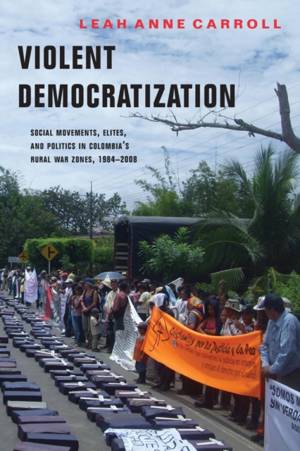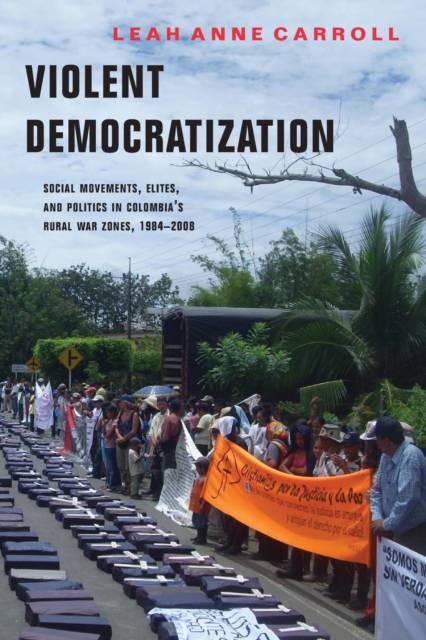
- Retrait gratuit dans votre magasin Club
- 7.000.000 titres dans notre catalogue
- Payer en toute sécurité
- Toujours un magasin près de chez vous
- Retrait gratuit dans votre magasin Club
- 7.000.0000 titres dans notre catalogue
- Payer en toute sécurité
- Toujours un magasin près de chez vous
Violent Democratization
Social Movements, Elites, and Politics in Colombia's Rural War Zones, 1984-2008
Leah CarrollDescription
In Violent Democratization, Leah Anne Carroll analyzes peasant and rural worker mobilization, as well as elite reaction, in Colombia's war zones over a period of twenty-five years and across three regions. Due to Colombia's long history of electoral democracy coinciding with weak state institutions, armed insurgencies, strong social movements, and violent responses from elites and the state, Carroll presents Colombia as a clear-cut national case of "violent democratization." Relying primarily on her interviews with leftist and social movement activists, elected officials, and some elites, as well as on electoral data and archival sources, Carroll reconstructs the political history of key county governments, providing a detailed account of the struggles for local power between elites, on the one hand, and rural agriculturalists and workers, on the other.
Carroll analyzes the ways in which the tactics of social movements and elites shifted as national political trends moved from greater political freedom, rapid decentralization, and peace overtures toward guerrilla groups characteristic of the 1980s and early 1990s, to the reversal of these trends and the major escalation of armed conflict and U.S. military aid thereafter. In all three regions, peasant, worker, and neighborhood movements, aided by leftist elected officials, initially gained significant victories. Their successes provoked a violent elite counteroffensive against activists, involving both military and elite-supported paramilitary forces. In response, however, a second wave of activism promoted human rights demands and sought international support to confront the violence of both the Right and the Left.
Within these commonalities, Carroll's three regional case studies (Uraba, the Middle and Lower Caguan Valley, and Arauca, producing bananas, coca, and oil, respectively) demonstrate how geographical location and the unique characteristics of the activist movements and regional elites (plantation owners, oil companies, cattle ranchers, and the military and paramilitary forces themselves) shaped each movement's tactics, unity, and success.
Spécifications
Parties prenantes
- Auteur(s) :
- Editeur:
Contenu
- Nombre de pages :
- 464
- Langue:
- Anglais
- Collection :
Caractéristiques
- EAN:
- 9780268023034
- Date de parution :
- 15-01-11
- Format:
- Livre broché
- Format numérique:
- Trade paperback (VS)
- Dimensions :
- 145 mm x 218 mm
- Poids :
- 417 g

Les avis
Nous publions uniquement les avis qui respectent les conditions requises. Consultez nos conditions pour les avis.






